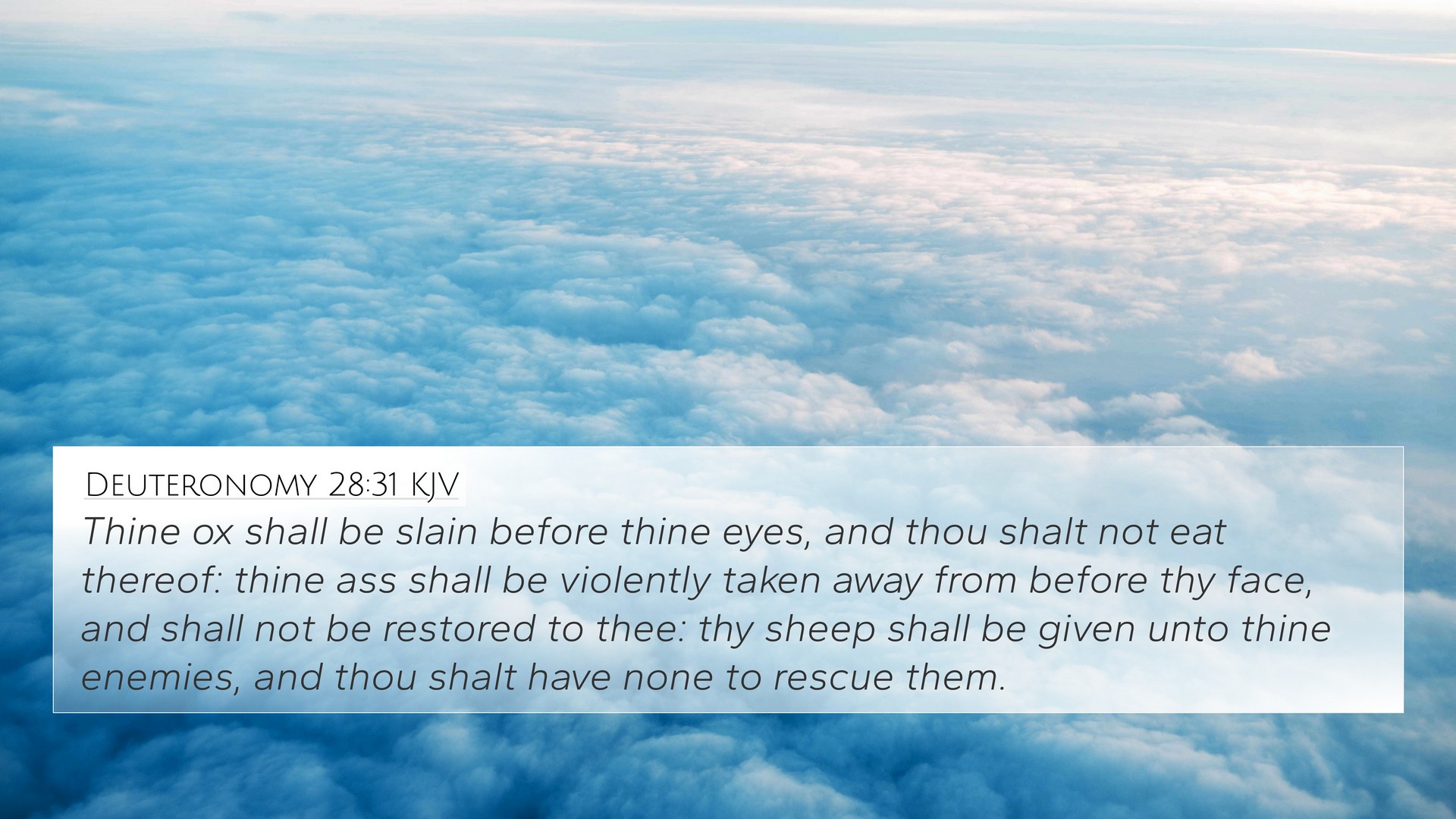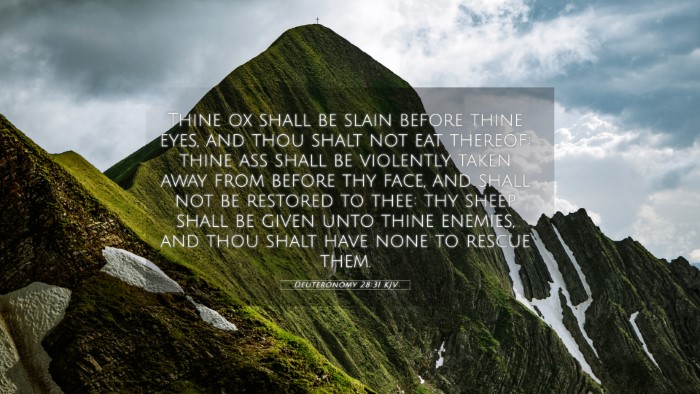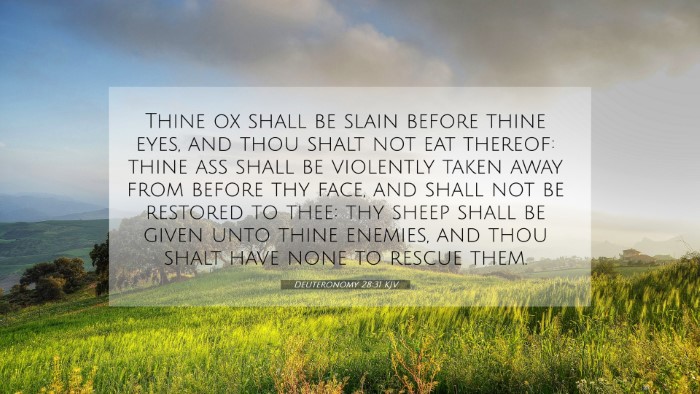Meaning of Deuteronomy 28:31
Verse Overview: Deuteronomy 28:31 states:
"Your ox shall be slaughtered before your eyes, but you shall not eat of it; your donkey shall be violently taken away from before you, and shall not be restored to you; your sheep shall be given to your enemies, and you shall have no one to rescue them."
This verse reflects the consequences of disobedience to God's commandments. It's part of a broader section detailing the curses that will follow if the Israelites deviate from God’s laws.
Commentary Insights:
Drawing from various public domain commentaries, we can grasp a deeper meaning of this passage:
- Matthew Henry:
Henry emphasizes that this verse illustrates the disastrous effects of forsaking God's covenant. The livestock, which were central to the livelihood of the Israelites, are mentioned to signify that when a nation turns away from God, even its basic needs may be stripped away. It serves as a warning of both economic and social upheaval.
- Albert Barnes:
Barnes interprets this passage to indicate a complete loss of security and sustenance. The destruction of one’s property here signifies God removing His blessings from those who fail to adhere to His statutes. This reflects a profound sense of helplessness, as the Israelites will witness the loss but will not be able to enjoy the fruit of their labor.
- Adam Clarke:
Clarke expands on the metaphor by explaining that the loss of one's ox and donkey symbolizes a broader loss of stability and security. He notes that cattle were vital for agricultural work and transportation, illustrating how disobedience leads to loss not just spiritually, but materially.
Connecting Themes and Cross-References:
Deuteronomy 28:31 is interconnected with various other biblical themes and verses. Here we explore some key biblical cross-references:
- Deuteronomy 28:15: This verse begins the section of curses for disobedience, indicating the severe ramifications of turning away from God's laws.
- 2 Kings 24:14-16: A historical account of Jerusalem's fall and how the people became captives serves as an example of this prophecy.
- Jeremiah 5:17: Reflects God’s warning about the invasions that would befall Israel due to their unfaithfulness.
- Lamentations 2:12-16: Captures the suffering of Jerusalem and its people, mirroring the themes seen in Deuteronomy 28:31.
- Micah 6:15: Discusses the futility of labor and loss, which resonates with the warning given in Deuteronomy.
- Isaiah 5:9-10: This illustrates the disconnect and lack of blessings due to disobedience, echoing the sentiments found in this curse.
- Matthew 24:22: Jesus refers back to the Old Testament curses, reinforcing the idea that disobedience leads to judgment.
- Romans 1:18: Paul speaks of God’s wrath against those who suppress the truth, illuminating ties with the curse themes seen in Deuteronomy.
- Galatians 3:10: Discusses the idea of being under a curse for not keeping the law, tying the New Testament back to Old Testament curses.
- Revelation 18:8: The ultimate downfall of the unfaithful city echoes the themes of loss found in earlier scriptures.
Thematic Connections:
Understanding this verse, we can draw connections to multiple themes found throughout the Bible:
- Disobedience and Consequences: A recurrent theme where straying from God's commandments results in dire outcomes.
- Material Loss and Spiritual Disconnect: Often, losses in life symbolize deeper spiritual failures and disconnection from God.
- God's Justice: This verse exemplifies God’s justice where blessings are removed as a form of discipline.
- Restoration and Mercy: While this verse speaks of loss, other scriptures refer to God’s desire to restore His people when they repent.
Tools for Bible Cross-Referencing:
For those seeking to deepen their understanding of Scriptures and thematic connections, consider utilizing:
- Bible Concordance: A critical tool for finding cross-references and related verses.
- Bible Cross-Reference Guide: Helps identify connections for deeper study and understanding.
- Cross-Reference Bible Study: Engaging in this method can illuminate intertwined scriptural themes.
- Comprehensive Bible Cross-Reference Materials: Many resources compile verses that relate; use them to enhance your understanding.
Conclusion:
Deuteronomy 28:31 serves as a solemn admonition regarding the repercussions of turning away from God. By studying this verse and its context, as well as exploring cross-references throughout the Bible, we can comprehend the broader narrative of God’s covenant with His people, the importance of obedience, and the consequences of straying from His commands.




